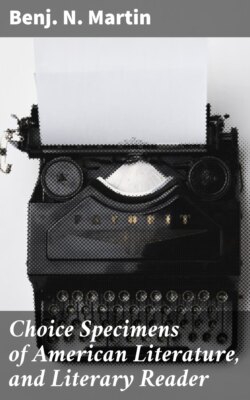Читать книгу Choice Specimens of American Literature, and Literary Reader - Benj. N. Martin - Страница 87
На сайте Литреса книга снята с продажи.
=56.= CHARACTER OF JAMES OTIS.
ОглавлениеJAMES OTIS, of Boston, sprang from families among the earliest of the planters of the Colonies, and the most respectable in rank, while the word rank, and the idea annexed to it, were tolerated in America. He was a gentleman of general science and extensive literature. He had been an indefatigable student during the whole course of his education in college and at the bar. He was well versed in Greek and Roman history, philosophy, oratory, poetry, and mythology. His classical studies had been unusually ardent, and his acquisitions uncommonly great. … It was a maxim which he inculcated on his pupils, as his patron in the profession, Mr. Gridley, had done before him, "that a lawyer ought never to be without a volume of natural or public law, or moral philosophy, on his table or in his pocket." In the history, the common law, and statute laws, of England, he had no superior, at least in Boston.
Thus qualified to resist the system of usurpation and despotism, meditated by the British ministry, under the auspices of the Earl of Bute, Mr. Otis resigned his commission from the crown, as Advocate-General—an office very lucrative at that time, and a sure road to the highest favors of government in America—and engaged in the cause of his country without fee or reward. His argument, speech, discourse, oration, harangue—call it by which name you will, was the most impressive upon his crowded audience of any that I ever heard before or since, excepting only many speeches by himself in Faneuil Hall, and in the House of Representatives, which he made from time to time for ten years afterwards. There were no stenographers in those days. Speeches were not printed; and all that was not remembered, like the harangues of Indian orators, was lost in air. Who, at the distance of fifty-seven years, would attempt, upon memory, to give even a sketch of it? Some of the heads are remembered, out of which Livy or Sallust would not scruple to compose an oration for history. I shall not essay an analysis or a sketch of it at present. I shall only say, and I do say in the most solemn manner, that Mr. Otis's oration against "writs of assistance" breathed into this nation the breath of life.
* * * * *
From the "Thoughts on Government."
